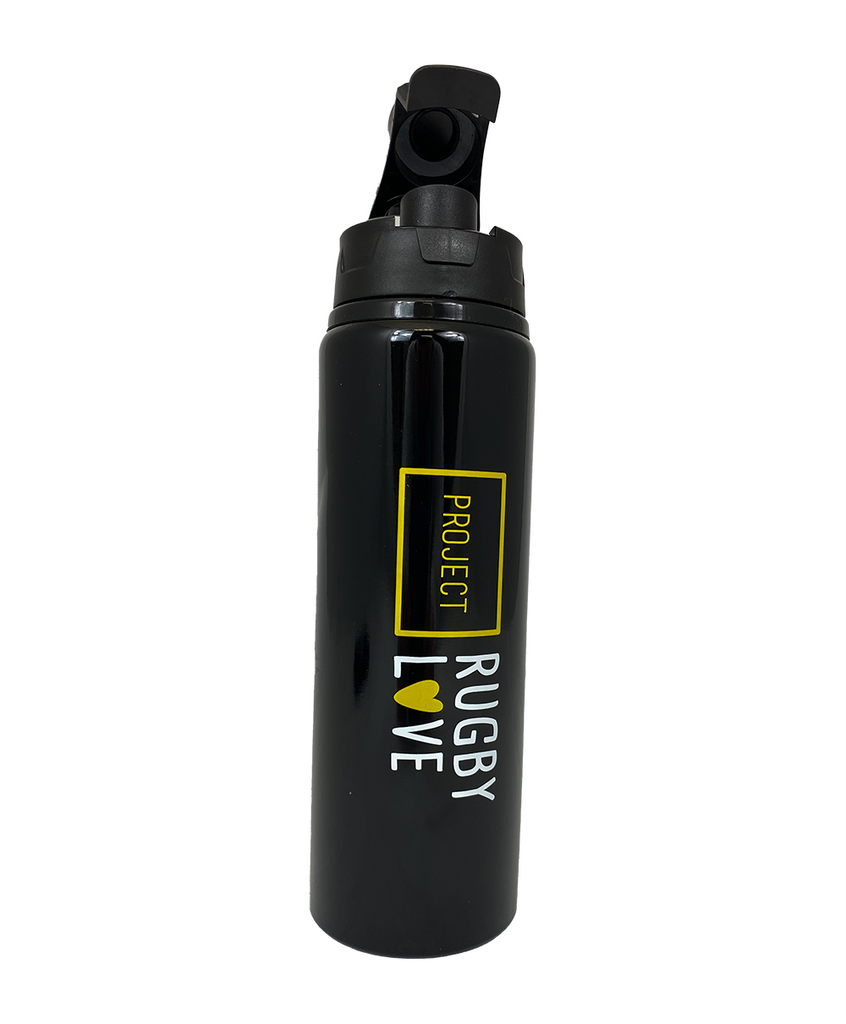
College rugby is a sport played by college students across the United States. Although most teams will be administered by their university's club sports department (student club), some schools have made commitments to pay coaches and scholarships for their team. The sport has gained varsity status, with more schools adding women's programs.
USA Rugby governs most collegiate rugby leagues. This includes the men’s Division I, Elite, and women's conferences D1 and 2. NCAA sanctioned women’s rugby. It is part of the Emerging Sports for Women program, which means that it must achieve championship status within 10 years.
Local unions used to govern collegiate rugby in the past. Since 2010, many programs have moved into conference structures. This has led to more colleges offering the sport at lower costs. Some have even gone on national competitions.

The Ivy Rugby Conference is a high-profile example of collegiate rugby's first conference structure. It was established in 2009 to encourage higher standards of play by Ivy League teams. A number of committees were formed to manage the league independently of LAUs.
The Ivy Rugby Conference has been a very popular venue for college athletics. It has also attracted both academic and commercial interests. For instance, Penn Mutual Life Insurance company signed a multi-year deal with Talen Energy Stadium, the former PPL Park in Philadelphia.
The College Rugby Association of America serves as another governing organization. The CRAA works to ensure that collegiate rugby student athletes have the best possible experience. To learn more about the organization and its members, visit its website. You can also download a free PDF that contains a comprehensive rundown of critical steps for aspiring college rugby players.
In the United States, college sport is a multi-billion dollar industry. Currently, over 2500 colleges and universities offer a variety of sport, and more are gaining athletic and athletics support. Moreover, the sport is becoming more affordable to top student athletes.

Upstate New York is now home to a new collegiate Rugby League. Upstate New York Collegiate Rugby Conference features competitive rugby at 2 tiers. Each tier of the competition will be based in an entirely different part of the country. However, the overall Division will remain the same. In the fall, teams will compete against each other in a conference split into East New York and Northern New York Divisions. The league will include a provisional division during winter which allows non-15s games outside the NIRA.
Fitzwilliam College is one of America's most successful collegiate rugby teams. The school was named Cuppers Champion in 2012 and won Division 1. Both Alistair Hignell (alumni) and Eddie Butler (academics) were alumni of the school. There are currently twenty-five colleges that sponsor a varsity rugby program.
As collegiate rugby becomes more popular, so is the demand for athletic support and funding. In the future, there will be more varsity rugby programs that are able to help top student rugby players afford their education.
FAQ
What happens to someone who falls off a cliff while participating in extreme sports?
Participating in extreme sports could cause you to fall off a cliff and break bones, or even your neck.
This injury could prove to be life-threatening. Falling from a height above 30 meters (100 feet) could result in your death.
Who is willing to go to the extreme?
Extreme sports are open to all abilities and ages. Extreme sport is equally appealing to children as for adults.
Younger kids can play games like dodgeball, tag, and capture the flag. You can also join a team and compete against other kids.
Adults can participate in individual sports or team sports. There are plenty of ways to find a team to play on.
It's likely that you'll need to ask someone who has done it before to help you get started.
Should kids do extreme sports?
This depends on whether we are talking about sports as a whole, or just one sport. They should try all types of activities. However, this will vary depending on the kind of skiing they choose. Some people prefer extreme sports like bungee jump, while others prefer gentler ones like downhill skiing. It also depends on how much risk is involved. Someone who enjoys skydiving might be afraid of heights.
Extreme sports: What can go wrong?
There are many situations that could occur when you take part in extreme sports. You could fall off cliffs or get injured.
You can avoid problems if these risks are known and you take preventive measures.
All you need is the right equipment, and the proper knowledge to use it.
If you get hurt in an extreme sport you can always count on someone to help you. If you get hurt, you'll be treated by medical professionals.
Sometimes injuries happen suddenly. Sometimes, bad judgment can lead to injuries.
You might fall if you try to climb too close a cliff edge. Hypothermia may also be possible if you fall into icy waters.
Sometimes accidents happen because of the mistakes of others. In some instances, injuries may be caused by another party.
Sometimes bad luck can lead to unfortunate events. One example is that you might be struck by a rock while you're falling. Sometimes, lightning strikes you.
What companies are most likely not to sponsor extreme sport?
Sponsoring extreme sports events, like BMX racing, skating, and snowboard competitions, is a lucrative business venture that often involves large corporations. They are often active in the local community where they work. Coca-Cola, for example, sponsors many local sporting events as well as other activities across North America. Coca-Cola also supports youth camps and programs at the local, national, and international levels. Coke sponsors the annual Coca-Cola Rock N' Roll Marathon in New York City. Around 100,000 runners come from all walks of the world to participate in this event.
Is extreme sport dangerous?
Extreme sports present dangers because they expose people to serious injury and death. However, there have been many deaths from other causes, such as car accidents, drowning, electrocution, etc.
Even when you're doing something relatively safe like riding a motorcycle or rollerblading there are still injuries.
Injuries are so likely that some people choose not to do extreme sports.
One example is that the National Football League has banned its players participating in extreme sports such as skateboarding due to the high risk associated with these sports.
Extreme sports are dangerous.
How is an extreme sport different from other sports?
Extreme sport requires physical exertion or skill in combination with a challenge.
This may include the use of equipment like helmets, goggles or other unique clothing.
Extreme sports do not require any training, unlike traditional sports.
They are usually outdoors and provide no protection in the event of an emergency.
Some extreme sports are illegal, while others are legal. It all depends on where and what type activities you're involved.
You need to verify the local laws if you plan on doing extreme sports.
Statistics
- Since 1998, overall participation has grown nearly 25% - from 5.2 million in 1998 to 6.5 million in 2004. (momsteam.com)
- Nearly 30% of all boardsailors live in the South, and more than 55% of all boardsailors live in cities with a population of more than two million people (momsteam.com)
- Based on the degree of difficulty, the routine is scored on form and technique (50 percent), takeoff and height (20 percent), and landing (30 percent). (britannica.com)
- Landscaping and grounds-keeping— according to government labor statistics, about 18 out of 100,000 workers in the landscaping industry are killed on the job each year. (rosenfeldinjurylawyers.com)
- According to the United States Parachuting Association, about 21 people die yearly from skydiving. (livehealthy.chron.com)
External Links
How To
How can you master parkour skills?
Parkour is an open-ended running style that involves people running through obstacles like trees, walls, fences, fences, and buildings. It is one of the most well-known sports, with millions of participants all over the globe. Parkour comes in many forms, including freestyle and wall climbing, as well as urban exploration, rescue, escape, urban combat and other.
Fitness is any activity that increases your physical fitness and overall health. This could include going to the gym, exercising cardio, or simply walking. Parkour is considered a sport because it requires that athletes use their body strength and speed as well as coordination and agility.
Here are some tips for parkour beginners:
-
Avoid places with stairs or other hazards. Flat ground is the best option. Avoid hills.
-
Shoes made from leather, rubber, or leather should be worn. If you're not sure what shoe will work best for your feet, feel free to try them all. A parkour session can be made or broken by the right shoes.
-
Take water bottles with you and snacks for practice sessions.
-
Before starting a parkour session, warm up first. This is warming up your muscles before you start the parkour session. Slowly increase intensity until you feel your muscles are fully warm.
-
Don't put too much emphasis on your arms or legs when you jump. Instead, concentrate on your core muscles and back muscles to help you get past obstacles.
-
Don't push yourself too hard; instead, take breaks every now and then. This allows you to recover quickly from the exercise without getting injured.
-
Parkour can be enjoyed while you listen to music. Music helps you relax, concentrate better, and makes it easier to focus.
-
After each session, stretch your muscles and joints to prevent injuries.
-
When you are exercising in public, make sure to keep your hands clean. You will not endanger someone else.
-
You can track your progress by writing down your performance in an journal. This will help you remember your strengths, and your weaknesses.
-
Parkour is meant to be enjoyed. Don't let fear of losing your balance stop you from enjoying the parkour experience. Don't be discouraged if you fall.
-
Every day, learn new tricks.
-
You should eat healthy foods. Consuming a high-protein diet will allow you to gain muscle mass more quickly.
-
Find a mentor to work with. Mentors are usually able to show you how you can do certain moves. They also provide advice about how you can improve your skills.
-
Ask questions! You will find fellow enthusiasts love to learn new things. If you have any questions, don't be afraid to ask!
-
Practice makes perfect. You can train whenever you want.
-
Have fun
-
Last but not least, be safe